![]() — Home — Business News
— Home — Business News
Weekly Business News from Myanmar
-
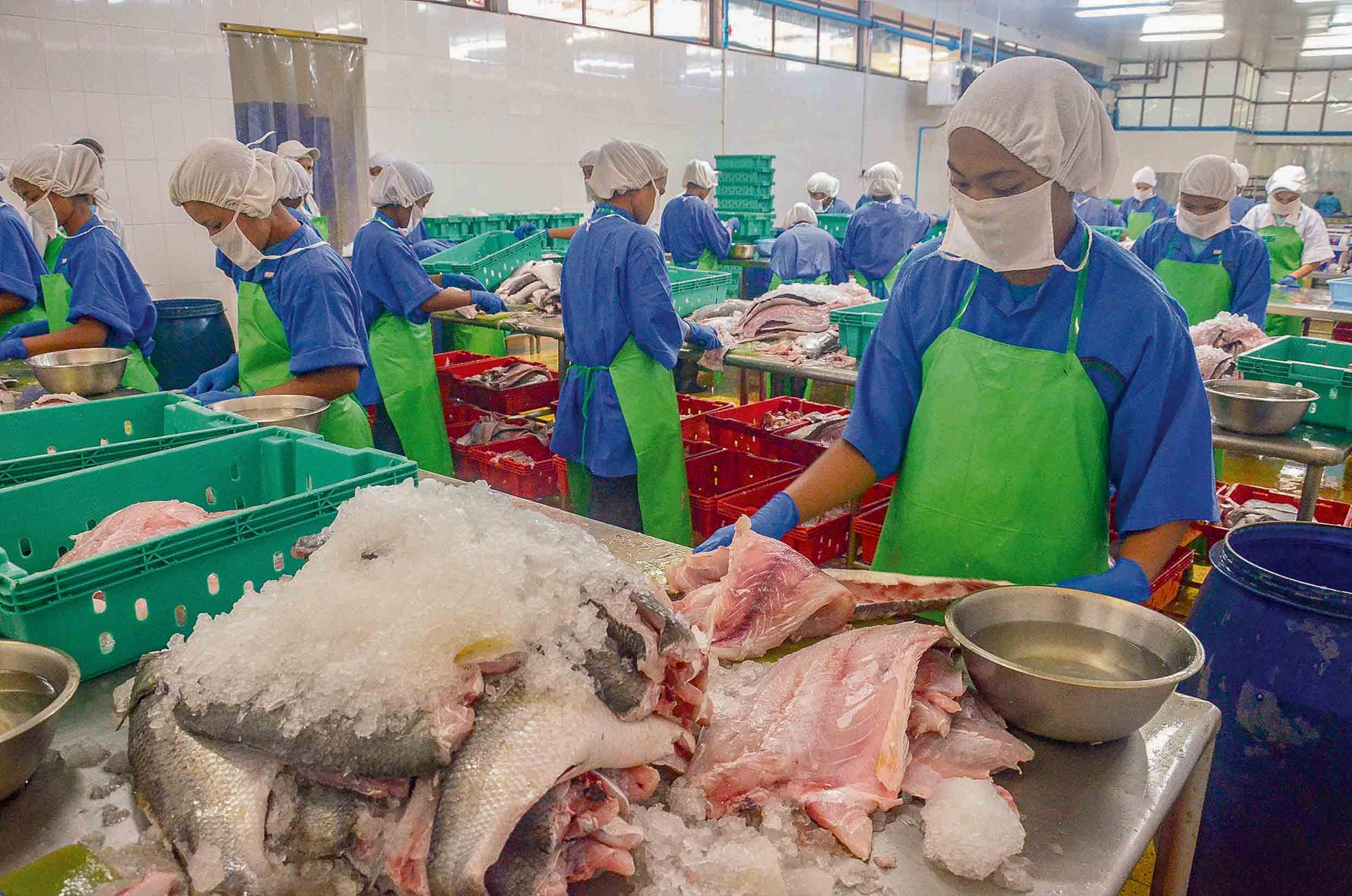
The exports earnings from the fisheries sectors reached over USSD $ 700 million in the 2019 – 2020 fiscal year
Export earnings from the fisheries sector during the period between 1 October and 26 June in the 2019-2020 financial year reached US$703.7 million, an increase of $105 million from the year-ago period, according to the statistics released by the Commerce Ministry. The figures stood at just $598.7 million during a-year ago period. During the current fiscal, the fishery exports are expected to reach a record high. So far, over 580,000 tonnes of fishery products have been shipped to the external market. The export volume reflects an increase of 70,000 tonnes compared with those registered in the last fiscal year. Myanmar Fisheries Federation (MFF) expected to earn more than $800 million from fishery exports in the current fiscal year, said an official of MFF. -
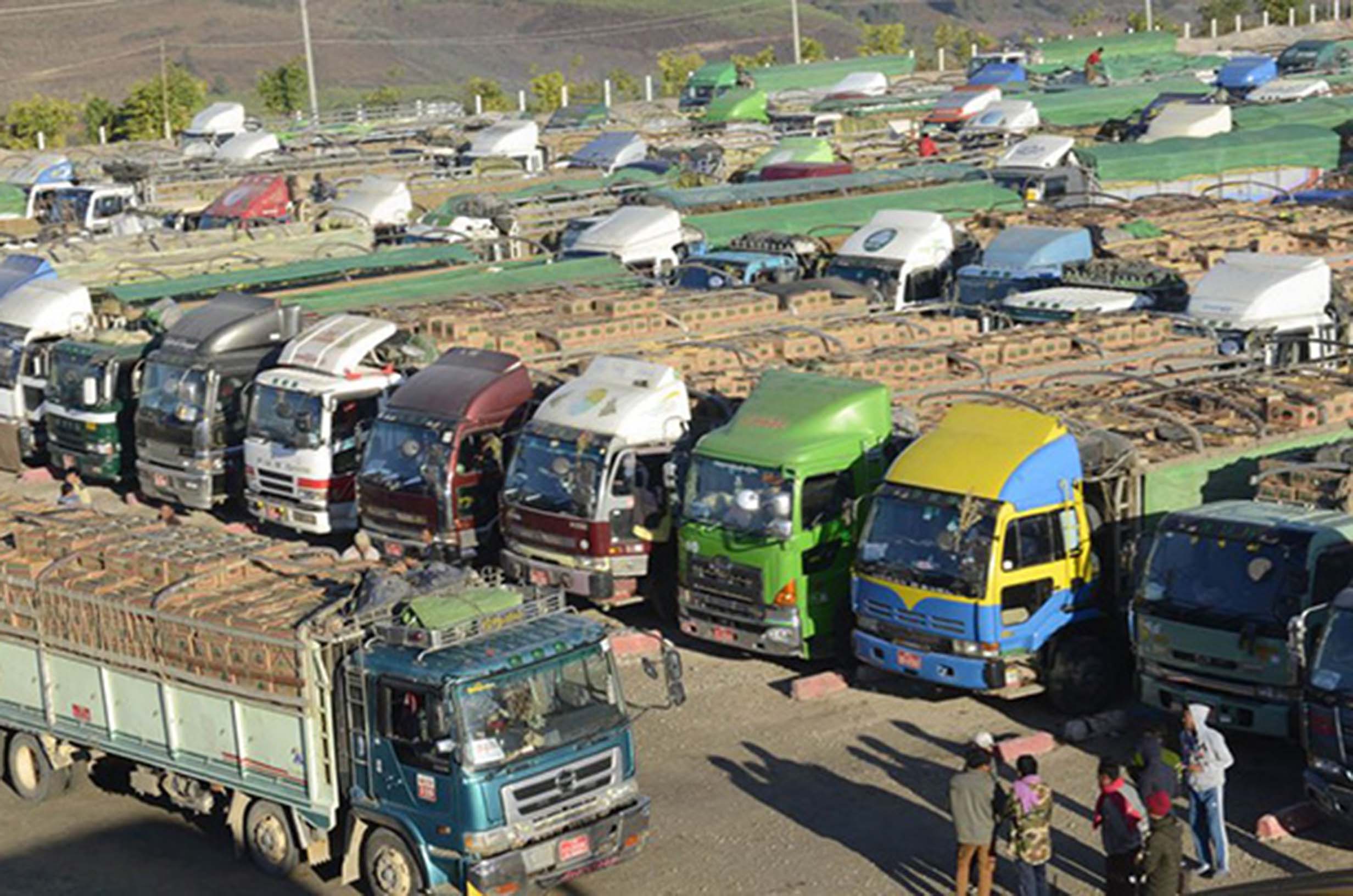
The bilateral trade between Sino – Myanmar border trade falls by USD $ 95.7 million in the first three quarter of 2019 – 2020 fiscal year
Sino-Myanmar border trade has registered a decrease of US$95.7 million between 1 October and 26 June in the current fiscal year 2019-2020, according to the Ministry of Commerce. Data from the Ministry of Commerce shows the value of Sino-Myanmar border trade at all five borders touched over $4.4 billion in the current fiscal, which significantly plunged from over $4.5 billion recorded in the year-ago period. This FY, border trade values totalled $3.6 billion at Muse, $120 million at Lweje, $391 million at Chinshwehaw, $254 million at Kampaiti, and over $4.31 million at Kengtung. The Commerce Ministry’s data showed a drop in trade value at all those gates. The decline in trade is attributed to the trade suspension and trade delay due to the tight security measures of the coronavirus outbreak and spread. At present, China has been stepping up border control measures to contain the spread of the coronavirus disease. Therefore, Chinese buyers do not come to Myanmar borders in light of viral infection fears, forcing Myanmar truck drivers to leave for Wanding area to sell the goods. -
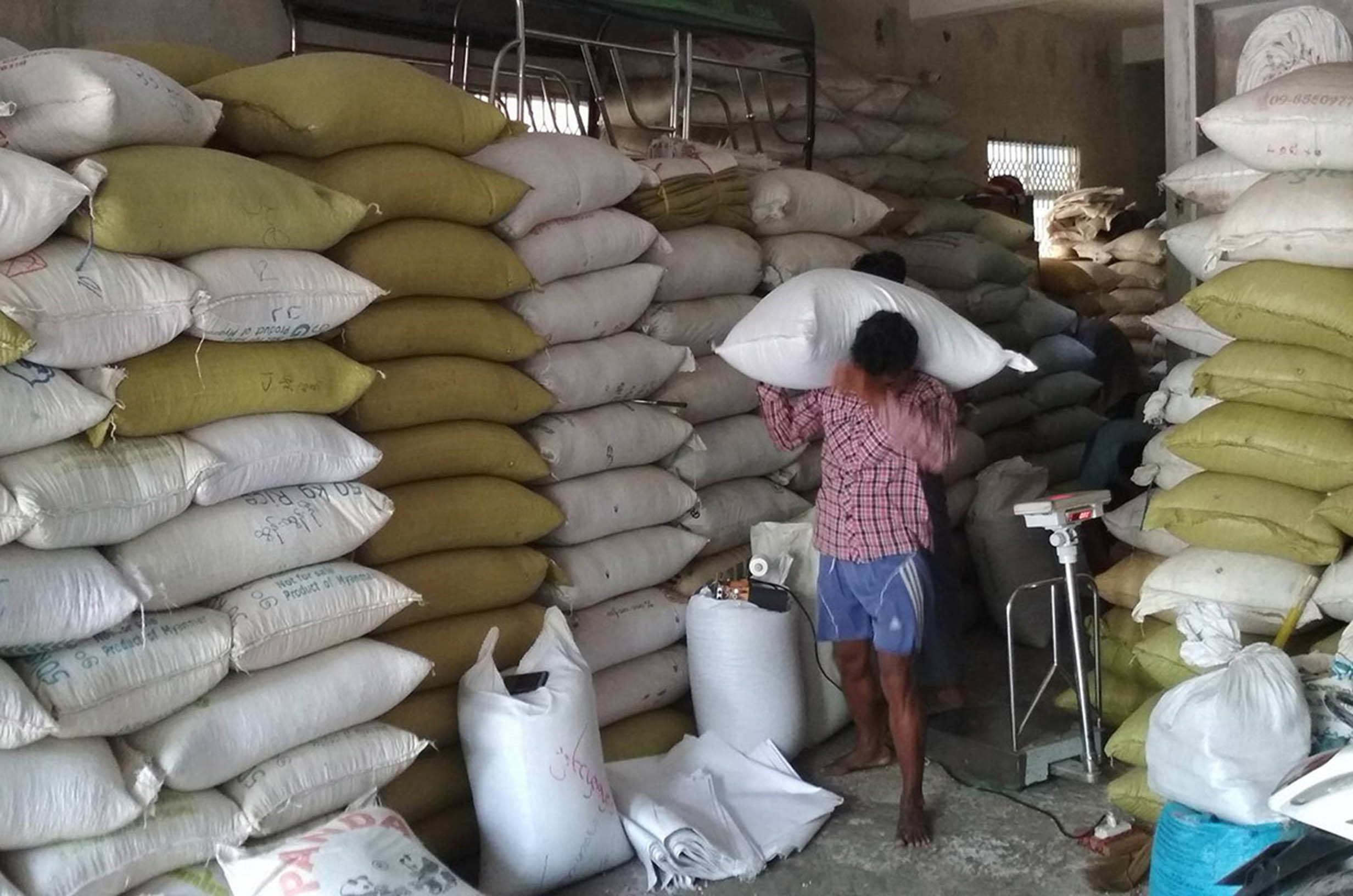
India’s low demand on pluses and beans slashed black bean prices in domestic market
India’s low demand on pulses and beans has brought down the black bean prices in the domestic market, said an official of Myanmar Pulses, Beans and Sesame Seeds Merchants Association. Regarding the importation of 400,000 tonnes of black beans for the next fiscal year, India has narrowed the import deadline by August-end. It has also granted import licences to some companies. However, due to the spread of coronavirus infection, India’s companies reduced the import volume. The prevailing prices of black bean stand at around K985,000 per tonne, whereas the price jumped to above K1 million per tonne in June-end. The domestic market witnessed a sharp fall of K25,000 per tonne with the drop in India’s demand in the first week of July. The traders are closely observing the market with the changes in India’s policy on bean importation. Now, the growers have already sold out the beans and they are in the hands of traders. It is really hard to meet the import deadline. “The changes of policy reflect on the unguaranteed market for the domestic growers. The sudden change in policy burdens the growers, raising confusion,” said an official of the association. -

Thailand will reopen border speedboat terminals to ease commodity flow at Myawaddy
Thailand will reopen border speedboat terminals, closed for over three months due to the Covid-19 outbreak on July 6, to ease commodity flow at Myawady, Myanmar’s busiest border trade town, according to a meeting held in Mae Sot by Tak Province administrative officials. Tak Province Governor Orassit Samphantharat said 33 cross-border jetties would reopen to speed up bilateral border trade. Although the reopening of 33 jetties on July 6 has been confirmed, No (1) Friendship Bridge has yet to reopen. -
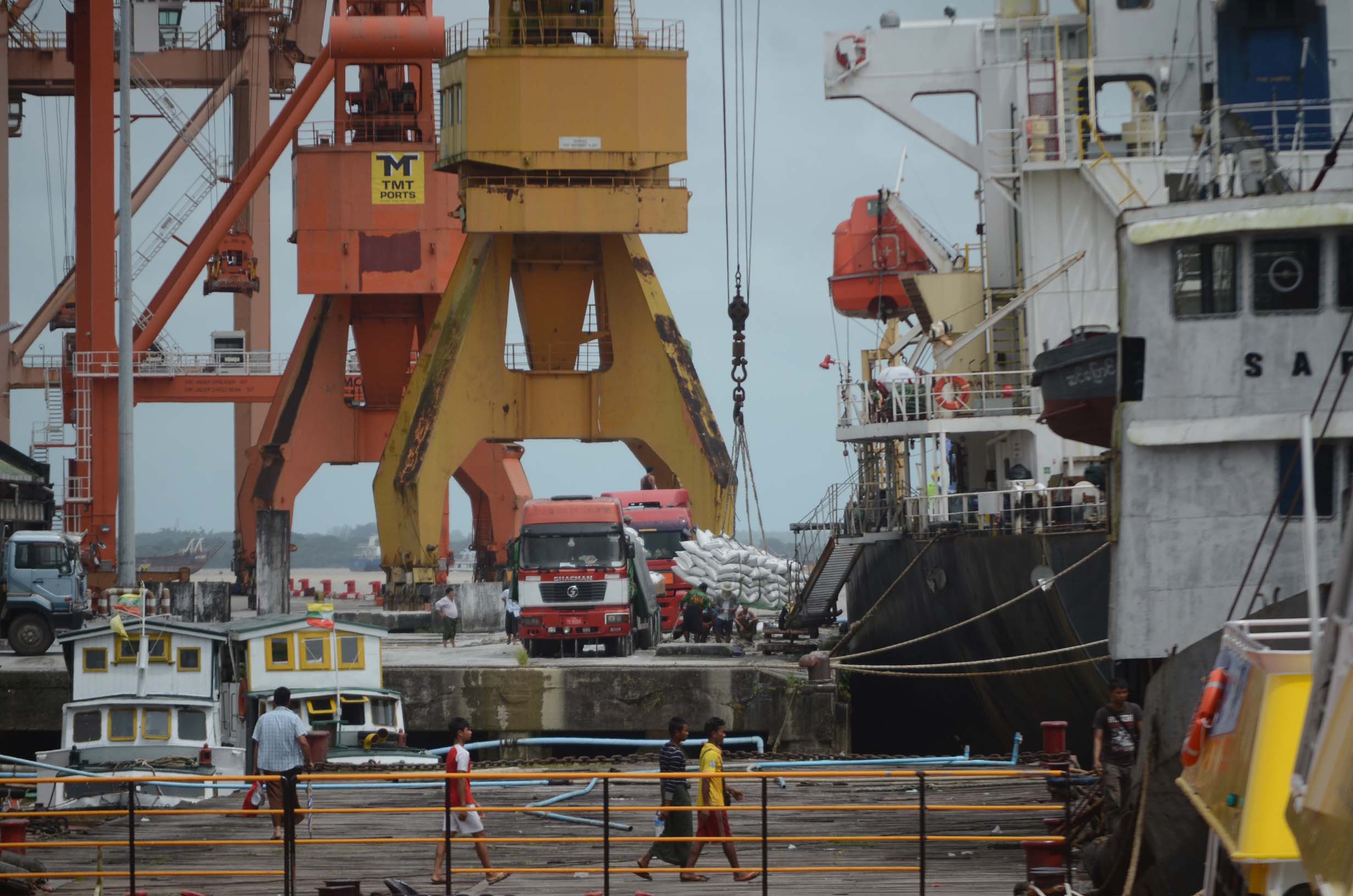
The volume of rice and broken rice exports exceeded 2 million tonnes as of 19 June in the current fiscal year
The volume of rice and broken rice exported between 1 October and 19 June in the current fiscal year crossed 2.088 million metric tons, worth $621 million, according to an announcement from the Myanmar Rice Federation (MRF). Myanmar’s maritime trade constituted 86.08 per cent of rice exports and generated an estimated income of US$539.57 million as of 19 June in the current fiscal year, showing an increase of $184 million against last year, as per data from the Commerce Ministry. Earlier, border trade was relatively high compared to sea trade in terms of rice exports. Since the previous financial year, border trade has dropped, and currently, it accounts for just 13.92 per cent of the total rice exports. Rice exports through the border gates have generated an estimated $81.47 million in the current financial year, which plunged from $167 million registered during a-year ago period. -
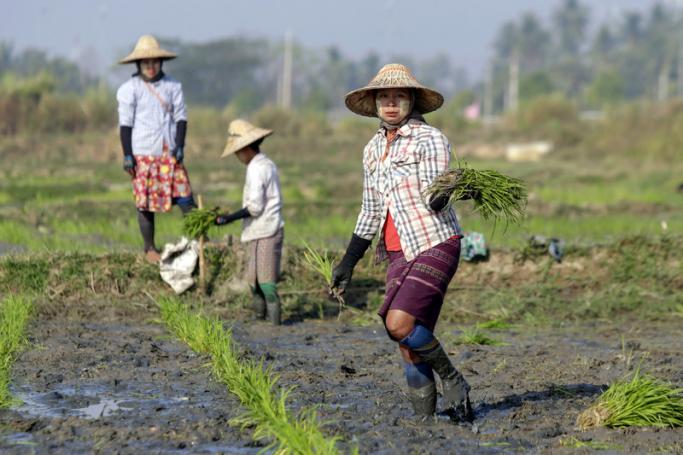
COVID – 19 economic recovery plan and health safety protocols in place are aimed at rebooting the economy and society
COVID – 19 economic recovery plan and health safety protocols in place are aimed at rebooting the economy and society -

The bilateral trade between Myanmar and Bangladesh increased USD $ 730 million in the third quarter of 2019 – 2020 fiscal year
Bilateral border trade stood at over US$ 747.63 million as of 26 June in the current 2019-2020 fiscal year (FY) which saw an increase of $730 million from the corresponding period of last year, according to the Ministry of Commerce. At this time last FY, Myanmar-Bangladesh trade through two borders hit $17.26 million, with exports worth $15.98 million and imports amounting to $1.27 million. When compared with last FY, this FY saw a significant increase in the value of exports by $427.42 million while the bilateral imports rose by $302.96 million. Between 1 October and 26 June, Myanmar exported $443.4 million worth domestic products to Bangladesh and imported goods valued over $304.2 million. Myanmar exports goods to Bangladesh through both maritime and land routes. Bilateral border trade is conducted mainly through the Sittway and Maungtaw points of entry. The products traded between the two countries include bamboo, ginger, peanuts, saltwater prawns and fish, dried plums, garlic, rice, mung beans, blankets, candy, plum jams, footwear, frozen foods, chemicals, leather, jute products, tobacco, plastics, wood, knitwear and beverages. -
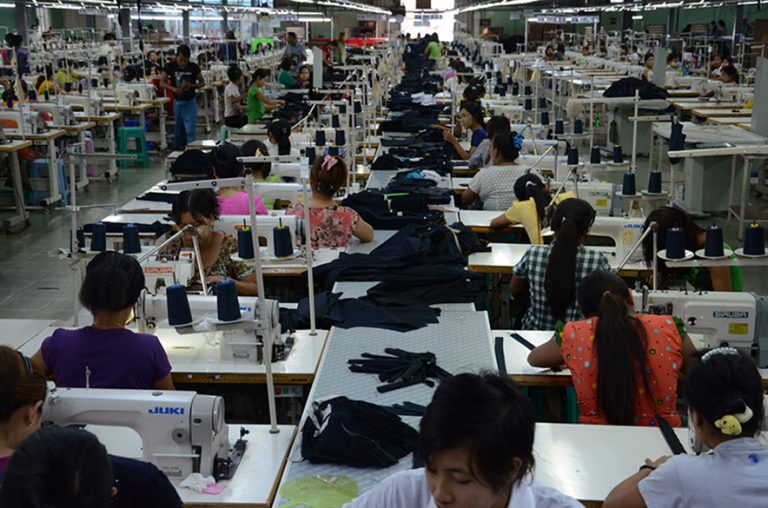
Yangon Region tops foreign investments pulling in over 600 enterprises over the four years of the incumbent government
Yangon Region tops foreign investments among the regions and states, attracting more than 600 enterprises over the four years of the incumbent government, according to the Directorate of Investment and Company Administration (DICA). Over the past four years, Yangon Region stood at the first place with 665 foreign enterprises, followed by Bago Region with 76 foreign projects at the second place and Mandalay, with 56 at the third place. Additionally, foreign direct investments also flow into Ayeyawady Region from 27 projects, Mon State from 16, Shan State from 12, Taninthayi from 10, Magway Region and Sagaing Region each from nine, Nay Pyi Taw from eight, Kachin from six, Kayin from five, Rakhine from four, and Kayah from two, the DICA stated. The manufacturing sector has attracted the most foreign investments in Yangon Region, with enterprises engaging in the production of pharmaceuticals, vehicles, container boxes, and garments on a Cutting, Making, and Packing (CMP) basis. The investments in the regions also flowing into the hotel services, and other services sectors as well. To date, foreign investments from China, Singapore, Japan, Hong Kong, the Republic of Korea, Viet Nam, India, China (Taipei), Malaysia, the British Virgin Islands and Seychelles are arriving in the region. -
EU states suspend USD $ 100 million of Myanmar’s debt payments during COVID – 19
Six European Union states have deferred debt payments from Myanmar worth nearly US$100 million for the rest of this year to help the country’s efforts to focus on economic recovery from the COVID-19 pandemic. On Wednesday, the ambassadors of the European Union, France, Germany, the Netherlands, Finland, Austria and Poland announced that the EU has agreed to Myanmar’s request to its bilateral creditors to defer payments totaling US$98 million (134.5 billion kyats), constituting 20 percent of Myanmar’s debt payments due during the May-December 2020 period. The ambassadors said in their letter to U Soe Win, Union minister of planning, finance and industry, on Wednesday that “Myanmar is fully eligible for support under the debt moratorium (Debt Service Suspension Initiative).” The letter highlights the suspension is “in order to focus efforts on economic recovery from COVID-19.” -
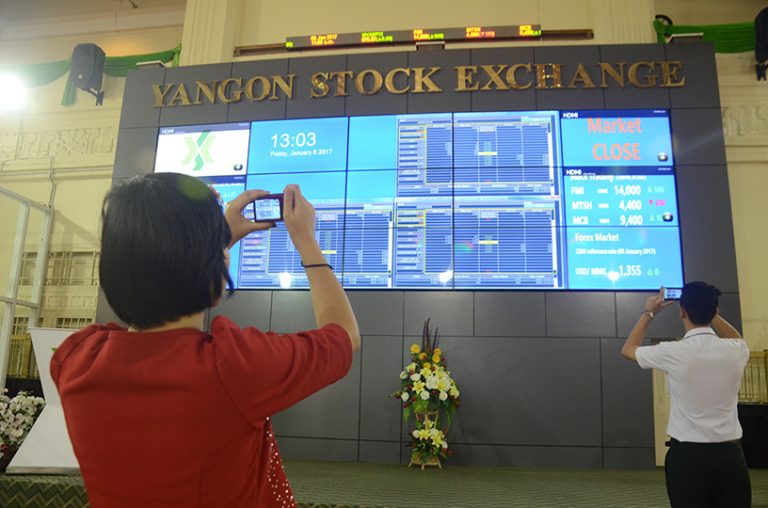
The value of shares trading on the Yangon Stock Exchange (YSX) increased by about K 100 million in June
The value of shares traded on the Yangon Stock Exchange (YSX) in June slightly rose to K1.3 billion, showing an increase of about K100 million compared with trading value in May, according to a YSX’s monthly report. The trading volume also surged to 221,682 shares in June. In January 2020, 196,836 shares worth K1.25 billion were traded on the exchange while 188,919 shares, with an estimated value of K1.48 billion, were traded on the exchange in February and 228,913 shares valued K1.42 billion were traded in March respectively. It touched the lowest of K902 million with 173,808 shares in April. It rose to K1.2 billion with 200,416 shares being traded in May, the exchange’s monthly report showed. At present, shares of six listed companies — First Myanmar Investment (FMI), Myanmar Thilawa SEZ Holdings (MTSH), Myanmar Citizens Bank (MCB), First Private Bank (FPB), TMH Telecom Public Co. Ltd (TMH) and the Ever Flow River Group Public Co. Ltd (EFR) are being traded on the exchange.
Business News
Copyright © 2014 Business Information Center All Rights Reserved.







